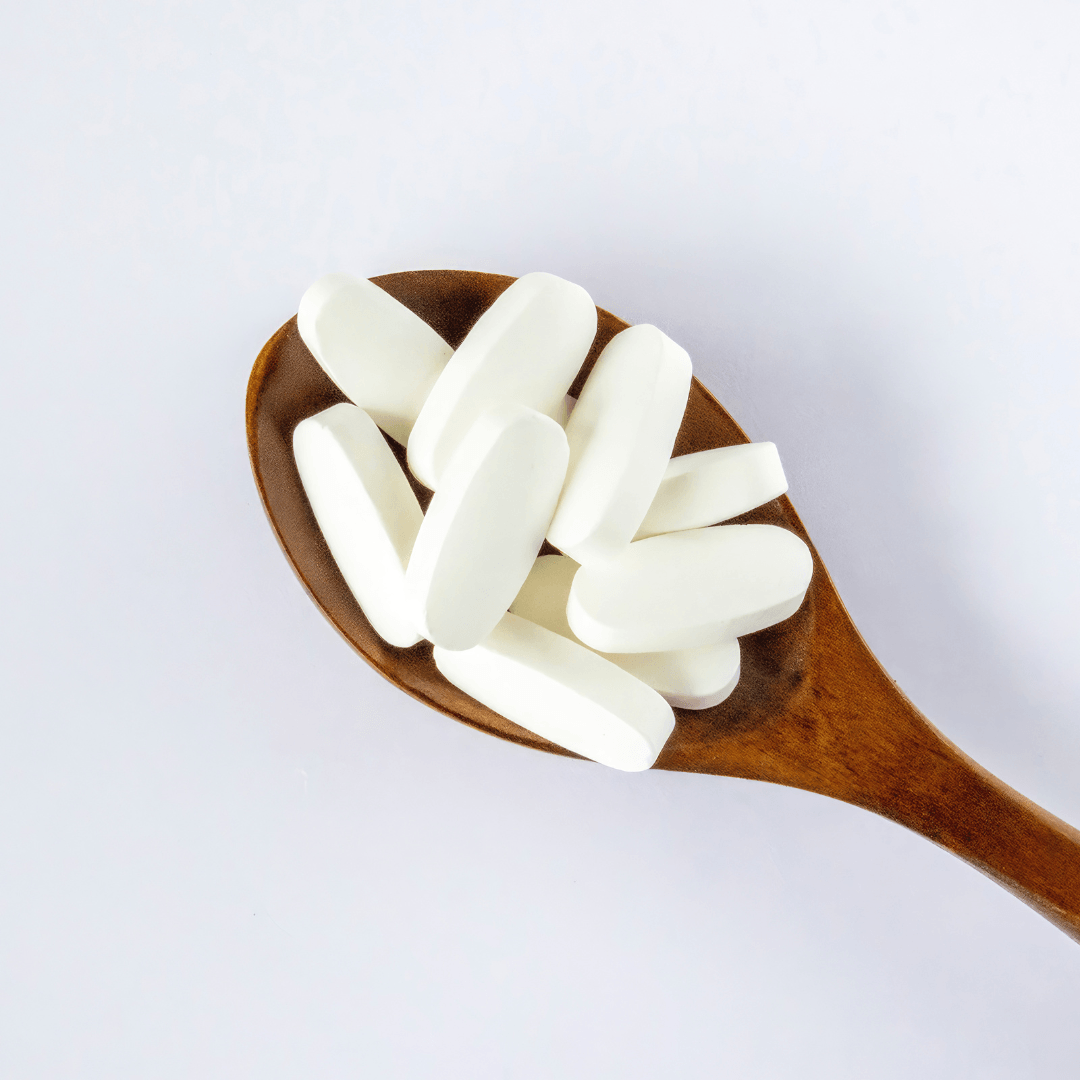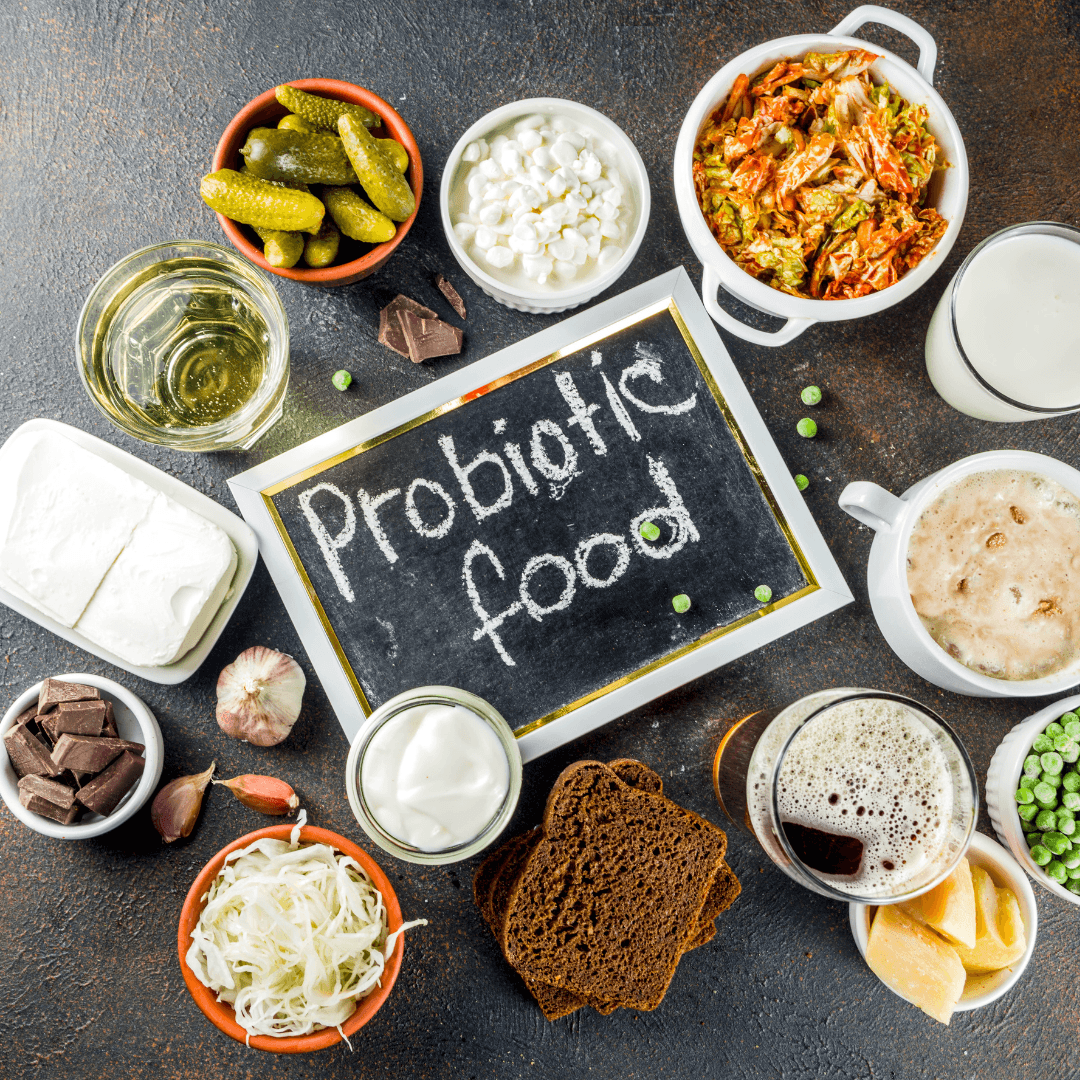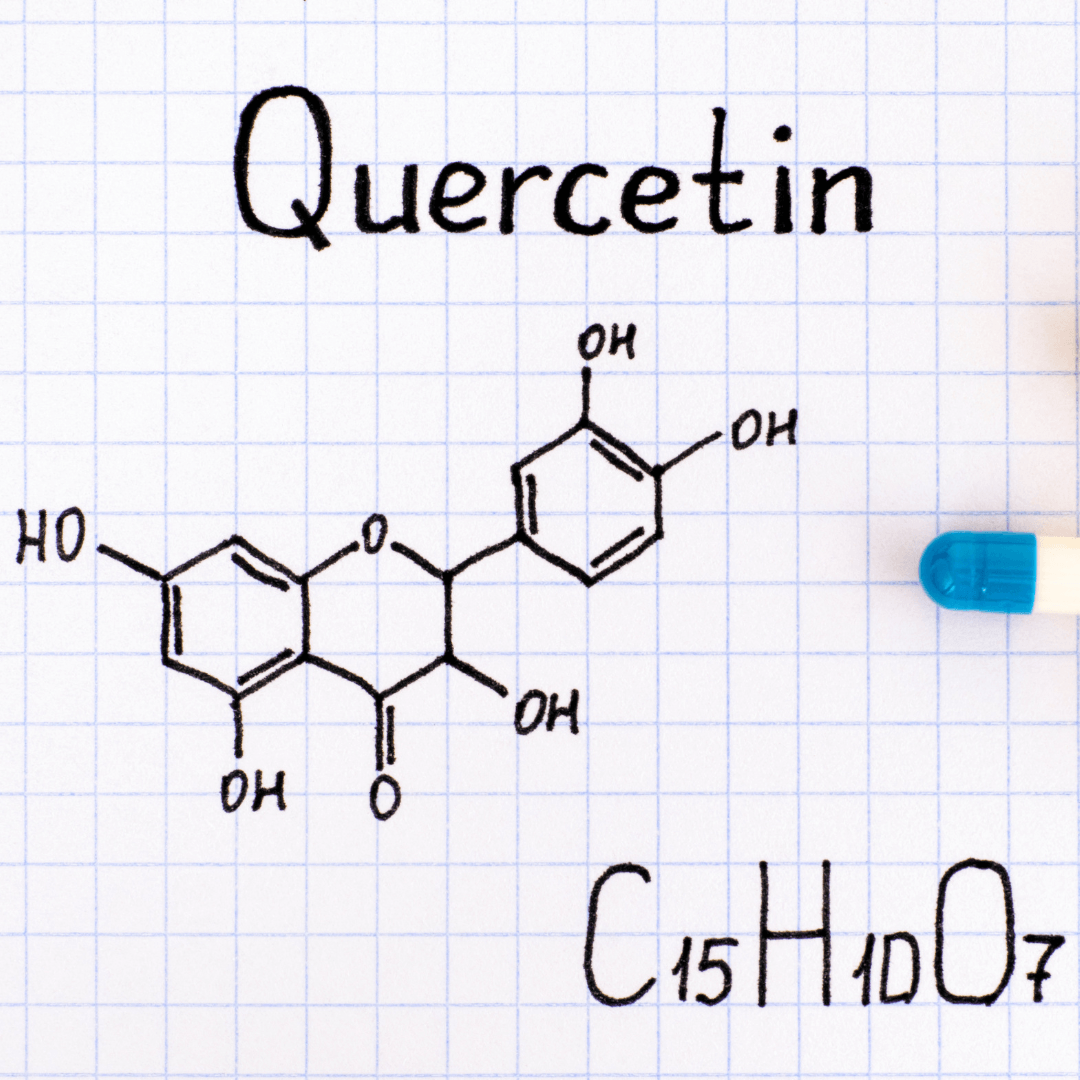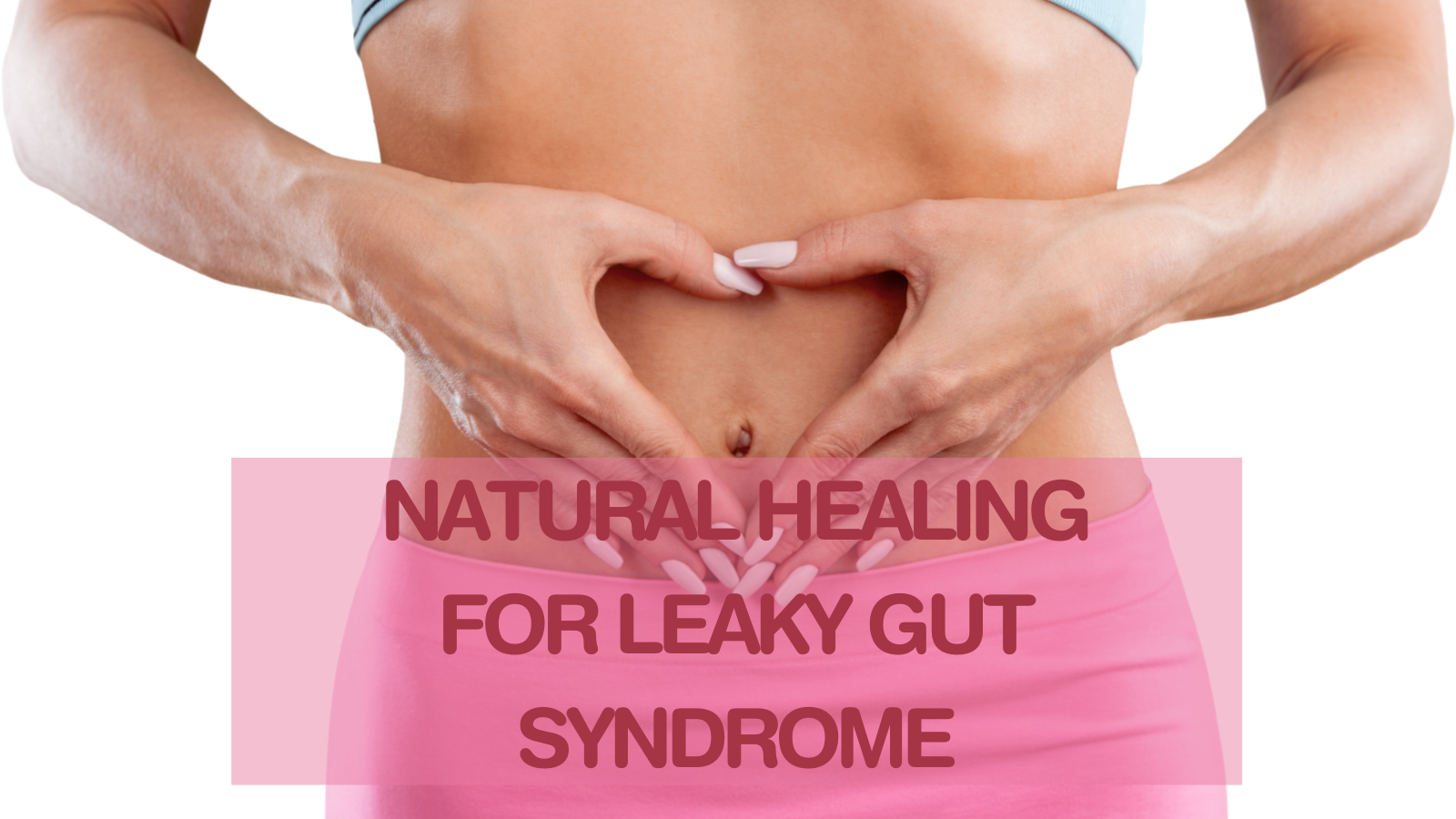Natural Healing For Leaky Gut Syndrome
Natural Healing For Leaky Gut Syndrome
In the intricate world of digestive health, the term “Leaky Gut Syndrome” has garnered increasing attention.
This condition, known formally as increased intestinal permeability, raises concerns due to its potential link to various health issues, from digestive discomfort to autoimmune diseases.
The gut, often described as our “second brain,” plays a pivotal role in our overall well-being, affecting not only digestion but also our immune system and even our mood.
Leaky Gut Syndrome is a condition where the lining of the intestines becomes more porous, allowing undigested food particles and toxins into the bloodstream. The result? A cascade of health problems.
But there's hope. Natural healing for Leaky Gut Syndrome offers a proactive and holistic approach to restoring gut health and overall vitality.
This article will embark on a journey through the intricate terrain of Leaky Gut Syndrome, exploring its causes, symptoms, and the power of natural remedies in healing the gut.
It's a journey of understanding, self-care, and embracing the transformative potential of a healthy gut.

Introduction To The Leaky Gut Syndrome
In digestive health, Leaky Gut Syndrome emerges as a concept of growing significance. This condition, formally known as “increased intestinal permeability,” revolves around the integrity of our intestinal lining.
The gut is more than just a food processor; it's a dynamic system influencing our well-being, including our digestive comfort, immune function, and emotional balance.
Leaky gut syndrome is brought on by pathogens, poisons, and undigested food particles getting into the circulation due to damage to the intestinal lining.
This infiltration triggers a cascade of health issues as the immune system responds to these foreign invaders, potentially leading to allergies, inflammation, and many other health concerns.
Understanding Leaky Gut Syndrome is paramount, as it reveals the intricate connection between gut health and overall well-being, offering opportunities for natural healing and holistic vitality.
Leaky Gut Syndrome's causes are multifaceted, ranging from a diet high in processed foods, chronic stress, and the overuse of antibiotics to environmental toxins and food sensitivities.
The symptoms, while diverse, often include digestive problems like bloating, diarrhea, and irritable bowel syndrome.
However, the implications of a compromised gut lining extend far beyond the digestive system.
Understanding the intricate web of causes, symptoms, and the far-reaching impacts of Leaky Gut Syndrome is pivotal for embarking on the journey of Natural Healing For Leaky Gut Syndrome and ultimately restoring health and vitality.
The immune system, when chronically exposed to these “leaks,” can become hypersensitive, leading to allergies and autoimmune diseases.
Mental health can also be affected, as the gut-brain connection plays a significant role in mood disorders like anxiety and depression.
By understanding the complexities of Leaky Gut Syndrome, individuals can take proactive steps to heal their gut, leading to improved overall health and vitality.
Common Symptoms
The symptoms of leaky gut syndrome vary and are frequently confused with those of other medical conditions.
Common digestive symptoms include chronic bloating, gas, diarrhea, and abdominal cramps. Natural Healing For Leaky Gut Syndrome can relieve these challenging symptoms, offering a holistic approach to restoring gut health and overall well-being.
Allergies and food sensitivities become prevalent as the compromised intestinal lining allows undigested particles to enter the bloodstream, leading to immune responses like hives, congestion, or anaphylactic reactions.
Increased inflammation may cause skin conditions like psoriasis, acne, or eczema to worsen or even develop.
Fatigue, joint pain, and muscle aches are frequently reported, as systemic inflammation can affect various organs and systems.
Mood swings, anxiety, and sadness are among the mental health problems that may arise due to the gut-brain connection, which suggests that gut health has a major impact on mental health.
These symptoms often overlap and create a complex web of discomfort. Proper diagnosis and holistic healing approaches are essential for managing Leaky Gut Syndrome and alleviating these distressing symptoms.
Natural Healing For Leaky Gut Syndrome
1. Healing With Whole Foods
The healing power of whole foods transcends the boundaries of mere sustenance, offering a profound pathway to nurturing our gut health.
The emphasis on whole, unprocessed foods becomes paramount within Leaky Gut Syndrome. Brimming with vitality and nutrients, these foods play a pivotal role in fortifying our gut's protective fortress.
Imagine a diet teeming with fibre-rich wonders like whole grains, legumes, and a vibrant palette of vegetables and fruits.
This dietary symphony isn't just about appeasing our taste buds; it's a conscious effort to cultivate the garden of our gut microbiome.
Dietary fiber, the unsung hero, takes center stage. As it journeys through our digestive system, it acts as a prebiotic, fueling the growth of our intestinal allies—the beneficial bacteria.
These microorganisms, like diligent gardeners, tend to the delicate flora of our gut, fortifying the protective barrier.
The more they thrive, the stronger our gut lining becomes, sealing the leaks and defending us against the assault of toxins and undigested particles.
But it doesn't stop there. Whole foods also deliver a cornucopia of vitamins, minerals, and antioxidants, each playing a unique role in our gut's intricate ecosystem. They nourish and repair, bolstering our digestive resilience.
However, in our quest for healing, it's crucial to recognize the shadows lurking in the world of processed foods.
These artificial concoctions, laden with additives and preservatives, often act as saboteurs, eroding the integrity of our gut lining.
Thus, we find ourselves at a crossroads, faced with a choice that transcends mere dietary preference—a choice for well-being, vitality, and healing.
As we journey through the lush garden of whole foods, we sow the seeds of transformation, nurturing our gut health and reaping the benefits of a fortified, thriving gut microbiome.
The result? A healthier, happier, and more resilient you, with the unshakeable knowledge that the healing power of nature's bounty is indeed profound.

2. Gut-Healing Nutrients
Unlocking the potential of gut-healing nutrients is like discovering a treasure chest of natural remedies for Leaky Gut Syndrome.
These key nutrients are pivotal in fortifying our gut lining and promoting healing. Let's start with L-glutamine, an amino acid often called the gut's best friend.
L-glutamine is like a magic elixir for our intestinal cells, promoting their growth and repair. Found in various protein-rich foods like beans, spinach, and tofu, it acts as a mighty shield against inflammation.
Zinc, another essential player in this symphony of healing, is the guardian of our gut's immune system.
This mineral bolsters our defences and promotes wound healing and tissue repair. Nuts, seeds, whole grains, and legumes are excellent sources of zinc, making them a valuable addition to our gut-healing arsenal.
Not only is vitamin D frequently linked to healthy bones, but it also significantly affects gastrointestinal health.
This vitamin is like a conductor, orchestrating the harmony between our gut microbiome and the gut lining.
With adequate vitamin D, we can strengthen the integrity of our intestinal barrier. Sunshine is one of the best sources of this vitamin, but it can also be found in fortified plant-based milk and supplements.
Omega-3 fatty acids, the heroes of heart health, extend their protective wings to our gut. Within Natural Healing For Leaky Gut Syndrome, omega-3 fatty acids are like soothing balms for the inflamed gut, supporting healing.
These essential fats wield anti-inflammatory superpowers, reducing gut inflammation and fostering healing.
Flaxseeds, walnuts, chia seeds, and hemp seeds offer abundant omega-3s, empowering our dietary choices to be part of the healing journey.
Incorporating these gut-healing nutrients into our daily diet is not just about addressing the symptoms; it's a holistic approach to restoring balance and harmony to our gut ecosystem.
We can actively heal our gut and nurture our overall well-being by choosing foods rich in L-glutamine, zinc, vitamin D, and omega-3 fatty acids.

3. Gut-Friendly Foods
Delving into the world of gut-friendly foods is akin to discovering a symphony of flavours that harmonize with your digestive health.
One of the key players in this ensemble is bone broth, a time-honoured elixir that has long been revered for its gut-healing properties.
Rich in amino acids like glycine and proline, bone broth nurtures our gut lining and soothes inflammation.
It's like a warm, comforting hug for our insides. Another star in this symphony is fermented foods, such as sauerkraut, kimchi, and kombucha.
These foods are the conductors of gut health, teeming with beneficial probiotics that restore the balance of our gut microbiome. They foster diversity among our gut bacteria, promoting a robust and resilient gut lining.
Prebiotic-rich ingredients, like garlic, onions, and chicory root, are the foundation of this harmonious composition.
Prebiotics act as the essential sheet music, providing nourishment for the probiotics, which are vital for maintaining the integrity of our intestinal barrier.
These foods work together to ensure a well-orchestrated gut, reducing inflammation and improving nutrient absorption.
They contribute to the harmony that allows our gut lining to heal and regain strength. So, as you explore these gut-friendly foods, think of them as the virtuosos in a symphony of flavours that promote a healthy, resilient gut.

4. Probiotics And Fermented Foods
Within the intricate symphony of gut health, probiotics and fermented foods emerge as the virtuoso performers.
Our gut is home to trillions of microorganisms, a thriving ecosystem that influences our overall well-being.
Probiotics, the good bacteria, are the conductors of this orchestra, fostering harmony within our gut microbiome.
Natural Healing For Leaky Gut Syndrome champions the role of probiotics and fermented foods in nurturing a balanced and healthy gut microbiome.
Their preferred stages include yogurt, kefir, and kimchi, offering a rich, delicious performance filled with beneficial microbes.
Yogurt, a beloved dairy product, is renowned for its probiotic content. It features live active cultures, such as Lactobacillus and Bifidobacterium, which are essential in promoting gut health.
These probiotics help digest food, synthesize essential nutrients, and maintain a balanced microbial environment. Kefir, a tangy fermented beverage, is another standout act.
It's abundant in probiotics and provides a broader range of microbial strains, contributing to gut diversity.
Kimchi, a spicy Korean delicacy, is the lively crescendo in this symphony. It's a perfect example of how fermentation transforms ordinary vegetables into a probiotic-rich masterpiece. The fermentation process enhances the flavour and multiplies the beneficial bacteria present.
These probiotics integrate seamlessly into the gut microbiome when consumed, stimulating a balanced and resilient gut lining.
The beauty of this performance lies in its impact on gut healing. Intestinal barrier strengthening, decreased gut inflammation, and enhanced overall digestive health have all been associated with probiotics and fermented foods.
They help restore equilibrium to a gut that might have been disrupted by stress, medication, or an unbalanced diet.
As the stars of this symphony, probiotics and fermented foods play a vital role in orchestrating a gut that is not only resilient but also vibrantly healthy.

5. Leaky Gut Syndrome Supplements
In gut health and healing, supplements like quercetin, aloe vera, and licorice root support the body's journey to restore gut balance.
Quercetin, a natural flavonoid found in foods like apples, onions, and berries, is a potent antioxidant known for its anti-inflammatory properties. It can help reduce inflammation in the gut lining, contributing to healing.
Aloe vera, celebrated for its soothing properties in skincare, extends its healing touch to the gut. Aloe vera juice, derived from the succulent's inner gel, may support digestive health.
It is believed to have a calming effect on the digestive tract, reducing irritation and inflammation.
However, choosing a high-quality, pure aloe vera product is essential to avoid unnecessary additives or sugars that might counteract the benefits.
Licorice root, a common ingredient in traditional herbal medicine, can offer support. It contains compounds that may help soothe the digestive tract, reduce inflammation, and promote mucous production that can protect the gut lining.
DGL (Deglycyrrhizinated Licorice) is often recommended because it retains the beneficial properties of licorice root while removing a compound that can lead to high blood pressure.
It's important to note that while these supplements can be valuable allies in the journey to heal a leaky gut, it's wise to consult a healthcare provider before adding them to your regimen.
They may offer tailored advice based on your unique situation and requirements, guaranteeing the safe and efficient usage of the supplements.
These supplements are like supporting actors in the grand production of gut healing. They work alongside a healthy diet and lifestyle to bring the curtain down on Leaky Gut Syndrome and allow the body to restore equilibrium.

6. Managing Stress For Better Gut Health And Function
Stress management plays a pivotal role in healing from Leaky Gut Syndrome. Chronic stress can intensify the condition by triggering inflammation and compromising the gut lining.
Incorporating mindfulness practices such as meditation, yoga, and deep breathing exercises can be a sanctuary of solace in the battle against stress.
Meditation, with its tranquil ambiance and focus on the present moment, has the potential to reduce stress hormones and promote emotional well-being.
Likewise, yoga offers physical and mental benefits, emphasizing relaxation, flexibility, and stress reduction.
Deep breathing exercises, a portable stress-relief tool, can be practiced anywhere, calming the nervous system and helping the body respond better to stressors.
As they say, “a calm mind is a healthy mind,” and it couldn't be more accurate in the context of Leaky Gut Syndrome.
Stress management practices are the soothing balm for the mind and the gut, working together to nurture the healing process.
By incorporating these techniques, individuals can create an environment where stress no longer takes center stage, allowing the body to mend the gut lining and restore balance.

7. Identifying Food Sensitivities
Food sensitivity testing and the subsequent management of identified sensitivities are integral components of the healing journey from Leaky Gut Syndrome.
These sensitivities can exacerbate the condition by triggering inflammation and hindering the recovery of the gut lining.
In the comprehensive journey of Natural Healing For Leaky Gut Syndrome, food sensitivity testing and management are pivotal in identifying and addressing dietary triggers that contribute to gut inflammation and dysfunction.
Identifying specific food sensitivities is a critical step in the process. This can be achieved through comprehensive food sensitivity testing, pinpointing trigger foods that cause an immune response.
Alternatively, individuals can embark on an elimination diet, systematically removing potential culprits and reintroducing them to identify problematic foods.
Once trigger foods are identified, the management phase comes into play. Eliminating these foods can significantly alleviate symptoms and reduce inflammation in the gut.
Through this procedure, people can design a personalized diet that addresses their particular sensitivities, encouraging healing and halting more damage to the gut lining.
The synergy of food sensitivity testing and a well-managed dietary approach allows individuals to regain control over their gut health and create an environment where the gut can repair itself.
By addressing food sensitivities, individuals reduce the symptoms of Leaky Gut Syndrome and foster the healing process, moving closer to a healthier and balanced gut.

8. Exercise And Gut Health
Exercise plays a pivotal role in supporting gut health and overall well-being. Regarding Leaky Gut Syndrome, physical activity can be a powerful tool for managing and alleviating symptoms.
Regular exercise, whether cardiovascular workouts, strength training, or yoga, can help reduce inflammation throughout the body, including the gut.
It also contributes to maintaining a healthy body weight, which is essential for managing Leaky Gut Syndrome since obesity can exacerbate the condition.
Furthermore, exercise stimulates the gut by promoting peristalsis, the contraction of muscles that move food through the digestive tract.
This can help prevent stagnation in the gut, reducing the chances of toxins and undigested particles passing through the intestinal lining.
Crucially, physical activity has a significant impact on our stress levels. Leaky Gut Syndrome is prone to beginning and getting worse when stressed.
Frequent exercise lowers the synthesis of stress hormones and produces endorphins, natural mood enhancers.
This makes exercise an excellent stress reliever. Incorporating exercise into your routine can significantly contribute to managing Leaky Gut Syndrome by helping reduce inflammation, maintain a healthy weight, promote healthy digestion, and mitigate stress levels.
It is noteworthy that although exercise has many advantages, people should speak with their healthcare professional before beginning a new fitness program, particularly if they have any underlying medical concerns.
Making exercise a regular part of your life is key to supporting gut health and overall well-being.
Conclusion
In conclusion, Leaky Gut Syndrome is a complex condition that profoundly impacts one's health and well-being.
While it can be challenging, there is hope for healing and recovery. While addressing Leaky Gut Syndrome naturally is possible, it's important to remember that everyone's body is unique.
Consulting with a healthcare provider or a gastroenterologist is strongly recommended to develop a personalized plan and ensure the chosen approach is safe and effective.
In your quest to heal from Leaky Gut Syndrome, patience is key. The road to recovery may not be swift, but with dedication and the right approach, you can restore your gut health and regain a sense of well-being.
Natural healing for Leaky Gut Syndrome is about listening to your body, making informed choices, and nurturing your health with care and resilience.
I trust you enjoyed this article on Natural Healing For Leaky Gut Syndrome. Please stay tuned for more blog posts to come shortly. Take care!
JeannetteZ
>>>Please click here to read my all-inclusive article about A Comprehensive Guide To Healing Naturally<<<
>>>Are you interested in Natural Healing through Herbs? Please click here for my #1 Recommendation<<<
Your Opinion Is Important To Me
Thoughts? Ideas? Questions? I would love to hear from you. Please leave me your questions, experiences, and remarks about this article on Natural Healing For Leaky Gut Syndrome in the comments section below. You can also reach me by email at Jeannette@Close-To-Nature.org.
Disclosure
This post may contain affiliate links. As an Amazon Associate and other affiliate programs, I earn from qualifying purchases at no extra cost to you. Please read my full affiliate disclosure.
You might also enjoy these blog posts:
Easy Steps To Grow Angelonia In A Container
23 Best Healing Plants For Your Home
Natural Healing For Stomach Pain








